Key Takeaways
1. The meaning of life is a complex question with no simple answer
'What is the meaning of life?' looks at first glance like the same kind of question as 'What is the capital of Albania?', or 'What is the colour of ivory?' But is it really?
The question is multifaceted. The meaning of life is not a straightforward inquiry that can be answered with a simple fact or statement. It involves philosophical, psychological, and cultural dimensions that make it inherently complex. The question itself can be interpreted in various ways:
- What gives life purpose?
- What makes life worth living?
- Is there an overarching goal or design to human existence?
- How can we find fulfillment and satisfaction in our lives?
No universal consensus exists. Throughout history, thinkers, philosophers, and religious leaders have proposed numerous answers, but none have achieved universal acceptance. This lack of consensus reflects the deeply personal nature of the question and the diversity of human experiences and beliefs.
2. Happiness and love are strong contenders for life's meaning
Love means creating for another the space in which he might flourish, at the same time as he does this for you.
Happiness as a fundamental goal. Many philosophers, including Aristotle, have argued that happiness (or well-being) is the ultimate aim of human existence. This concept of happiness goes beyond mere pleasure, encompassing:
- The fulfillment of one's potential
- Engagement in virtuous activities
- A sense of purpose and accomplishment
Love as a relational meaning. Love, particularly in its broader sense of compassion and connection with others, is often seen as giving life its deepest meaning. This view emphasizes:
- The importance of relationships and community
- The fulfillment that comes from caring for others
- The idea that our lives are inherently intertwined with those around us
Reconciling happiness and love. Some argue that true happiness and love are ultimately aligned, as our deepest fulfillment comes through meaningful connections and contributions to others' well-being.
3. Death and mortality shape our understanding of life's significance
To live in an awareness of our mortality is to live with realism, irony, truthfulness, and a chastening sense of our finitude and fragility.
Confronting mortality enhances life. The awareness of our finite existence can paradoxically make life more meaningful by:
- Encouraging us to prioritize what truly matters
- Fostering appreciation for the present moment
- Motivating us to leave a positive legacy
Death as a philosophical lens. Many thinkers, from ancient Stoics to modern existentialists, have used the reality of death to explore life's meaning:
- It raises questions about the nature of existence and consciousness
- It challenges us to consider what, if anything, endures beyond our individual lives
- It prompts reflection on how we want to spend our limited time
Cultural attitudes toward death. Different societies and belief systems have varied approaches to mortality, which in turn influence their perspectives on life's meaning:
- Some emphasize an afterlife or reincarnation
- Others focus on achievements or contributions that outlast the individual
- Many encourage living fully in the present, knowing life is fleeting
4. The search for meaning is deeply influenced by historical and cultural contexts
In pre-modern societies, the meaning of your life consisted of its function within a greater whole. Outside this context, you were simply an empty signifier.
Shifts in societal worldviews. The way humans have approached the question of life's meaning has evolved dramatically over time:
- Pre-modern societies often saw meaning as predetermined by tradition or divine order
- The Enlightenment emphasized reason and individual autonomy
- Modern and postmodern perspectives grapple with relativism and the loss of grand narratives
Cultural variations in meaning-making. Different cultures approach the question of life's meaning in diverse ways:
- Some emphasize collective harmony and social roles
- Others prioritize individual self-realization
- Many blend religious or spiritual beliefs with secular philosophies
Contemporary challenges. The modern world presents unique obstacles and opportunities in the search for meaning:
- Globalization exposes us to a multitude of worldviews
- Technological advances raise new ethical and existential questions
- Rapid social change can lead to a sense of rootlessness or uncertainty
5. Meaning can be inherent in life or constructed by individuals
To say that meaning is 'inherent' – that it is somehow built into things or situations themselves, rather than foisted on them – may be a misleading way of talking; but it is possible, even so, to make some sense of it.
The debate over inherent meaning. Philosophers have long argued whether life has intrinsic meaning or if meaning is something we create:
- Inherent meaning suggests a pre-existing purpose or design to life
- Constructed meaning emphasizes human agency in creating significance
Arguments for inherent meaning:
- Religious or spiritual beliefs in a divine plan
- Philosophical arguments for objective moral values
- Biological perspectives on evolutionary purpose
Arguments for constructed meaning:
- Existentialist emphasis on individual choice and responsibility
- Cultural relativism and the diversity of human values
- Psychological theories of meaning-making as a cognitive process
A middle ground. Some thinkers propose that meaning arises from the interaction between inherent aspects of reality and human interpretation, suggesting a more nuanced view.
6. The concept of "life" itself is problematic when discussing its meaning
Perhaps we have the word 'life' only because our language is intrinsically reifying.
The challenge of definition. When we ask about the "meaning of life," we often overlook the complexity of defining "life" itself:
- Is it individual human existence?
- The collective experience of all living beings?
- The abstract concept of existence or consciousness?
Language limitations. Our linguistic structures may mislead us into thinking of "life" as a singular, unified concept when reality is far more complex:
- Different cultures and languages conceptualize life in varied ways
- Scientific and philosophical definitions of life often differ
Implications for meaning. The way we define "life" significantly impacts how we approach its meaning:
- A focus on individual human life may lead to more subjective or existential approaches
- Considering life as a broader biological or cosmic phenomenon may suggest more universal or objective meanings
Reframing the question. Instead of asking about the meaning of "life" as a whole, it may be more productive to consider:
- What makes individual lives meaningful?
- How can we find purpose within our specific contexts?
- What values or experiences are universally significant across human cultures?
7. Ethical behavior and social relationships are crucial to a meaningful existence
To live in this way is not just to have life, but to have it in abundance.
Ethics as a source of meaning. Many philosophers argue that living ethically is key to a meaningful life:
- It provides a sense of purpose beyond self-interest
- It connects us to larger social and moral frameworks
- It can lead to personal growth and self-respect
The importance of relationships. Human connections are often cited as central to a meaningful life:
- They provide emotional support and a sense of belonging
- They offer opportunities for love, growth, and self-discovery
- They allow us to contribute to others' well-being
Balancing individual and collective needs. A meaningful life often involves finding harmony between personal fulfillment and social responsibility:
- Contributing to society or a cause larger than oneself
- Developing one's talents and potential in ways that benefit others
- Cultivating virtues that enhance both personal and communal well-being
8. Philosophical and religious traditions offer diverse perspectives on life's meaning
It is true that artists had raised the question before 1870, but rarely as part of a whole culture of questioning.
Philosophical approaches. Various schools of thought have grappled with life's meaning:
- Ancient Greek virtue ethics (e.g., Aristotle's eudaimonia)
- Existentialist focus on individual choice and authenticity
- Utilitarian emphasis on maximizing overall well-being
Religious perspectives. Major world religions offer different frameworks for understanding life's purpose:
- Monotheistic traditions often emphasize serving God and following divine commandments
- Eastern philosophies may focus on breaking cycles of rebirth or achieving enlightenment
- Indigenous spiritualities frequently stress harmony with nature and ancestral wisdom
Secular humanism. This perspective seeks meaning without relying on supernatural beliefs:
- Emphasizes human reason, ethics, and the pursuit of knowledge
- Focuses on creating meaning through personal and societal progress
- Values scientific understanding and critical thinking
Integrating diverse viewpoints. Many contemporary thinkers draw on multiple traditions to develop nuanced perspectives on life's meaning, recognizing the potential insights from various approaches.
9. The pursuit of meaning often involves balancing individual and collective needs
It is possible, however, to draw a line through Baggini's points and see most of these goods as combinable with each other.
Individual fulfillment. Personal growth, self-expression, and the pursuit of one's passions are often seen as key to a meaningful life:
- Developing one's talents and abilities
- Achieving personal goals and aspirations
- Experiencing a sense of autonomy and authenticity
Collective well-being. Contributing to society and caring for others is frequently cited as a source of deep meaning:
- Engaging in acts of altruism and compassion
- Participating in community and civic life
- Working towards social justice or environmental sustainability
Seeking harmony. Many philosophers argue that true fulfillment comes from integrating personal and collective needs:
- Finding ways to align individual talents with societal needs
- Cultivating relationships that support both personal growth and mutual care
- Engaging in work or activities that are personally satisfying and socially beneficial
Cultural variations. Different societies may emphasize individual or collective aspects of meaning to varying degrees, reflecting diverse values and worldviews.
10. Acknowledging life's limitations can paradoxically enrich its meaning
Even bleakness cannot be absolute in a world without absolutes.
Embracing imperfection. Recognizing life's inherent challenges and limitations can lead to a deeper appreciation of existence:
- Accepting uncertainty and change as natural parts of life
- Finding beauty and meaning in life's transient nature
- Developing resilience and adaptability in the face of adversity
The value of struggle. Many philosophers argue that facing difficulties is essential to a meaningful life:
- Overcoming obstacles can lead to personal growth and self-discovery
- Shared struggles can foster solidarity and deeper human connections
- Confronting life's challenges can make moments of joy more poignant
Limits as opportunities. Constraints can paradoxically enhance creativity and meaning:
- Finite time can motivate us to prioritize what truly matters
- Physical or social limitations can inspire innovative solutions
- Acknowledging our fallibility can foster humility and openness to learning
Balancing realism and hope. A meaningful life often involves finding a middle ground between stark realism and blind optimism:
- Confronting life's difficulties while maintaining a sense of possibility
- Appreciating life's beauty without denying its pain
- Striving for improvement while accepting imperfection
Last updated:
FAQ
What's "The Meaning of Life: A Very Short Introduction" about?
- Exploration of Meaning: The book delves into the philosophical question of what the meaning of life is, examining whether it is a genuine question or a pseudo-question.
- Philosophical Perspectives: It provides a Cook’s tour of Western philosophy and literature, discussing various philosophical perspectives on life's meaning.
- Cultural Context: The book situates the question of life's meaning within cultural and historical contexts, exploring how different eras have approached the topic.
- Author's Approach: Terry Eagleton approaches the subject with a blend of humor and seriousness, aiming to make a high-minded topic accessible and engaging.
Why should I read "The Meaning of Life: A Very Short Introduction"?
- Accessible Philosophy: The book offers a concise and accessible introduction to a complex philosophical question, making it suitable for readers new to philosophy.
- Engaging Style: Eagleton's writing is known for its wit and erudition, providing intellectual stimulation in a readable format.
- Broad Overview: It covers a wide range of philosophical thoughts and cultural references, offering a broad overview of how the meaning of life has been perceived.
- Thought-Provoking: The book encourages readers to reflect on their own beliefs and assumptions about life's purpose and meaning.
What are the key takeaways of "The Meaning of Life: A Very Short Introduction"?
- Multiplicity of Meanings: The book suggests that the meaning of life may not be singular but could encompass various interpretations and purposes.
- Philosophical Inquiry: It emphasizes the importance of questioning and exploring philosophical ideas rather than seeking definitive answers.
- Cultural Influence: The meaning of life is influenced by cultural, historical, and personal contexts, and understanding these can enrich one's perspective.
- Role of Language: Eagleton discusses how language and grammar shape our understanding of meaning, highlighting the complexity of the question.
What are the best quotes from "The Meaning of Life: A Very Short Introduction" and what do they mean?
- "The meaning of life is not a solution to a problem, but a matter of living in a certain way." This quote suggests that life's meaning is found in how we live rather than in abstract answers.
- "The solution of the problem of life is seen in the vanishing of this problem." Reflecting Wittgenstein's influence, this implies that understanding life's meaning may involve transcending the question itself.
- "Love is the way we can reconcile our search for individual fulfilment with the fact that we are social animals." This highlights love as a central theme, suggesting it bridges personal and communal aspects of life.
How does Terry Eagleton define the meaning of life in the book?
- Not a Single Answer: Eagleton argues that the meaning of life is not a single, definitive answer but a complex interplay of various factors.
- Ethical Living: He suggests that the meaning of life is more about ethical living and the quality of life rather than metaphysical truths.
- Love and Reciprocity: Love, understood as a reciprocal relationship that allows mutual flourishing, is central to Eagleton's view of life's meaning.
- Cultural and Historical Contexts: The meaning of life is also shaped by cultural and historical contexts, which influence how individuals perceive and live it.
What philosophical perspectives are explored in "The Meaning of Life: A Very Short Introduction"?
- Existentialism: The book discusses existentialist views, particularly those of Sartre and Camus, on life's absurdity and the search for meaning.
- Nihilism and Postmodernism: It explores nihilistic and postmodern perspectives that question the existence of inherent meaning in life.
- Religious and Theological Views: Eagleton examines religious perspectives, including the role of God and spirituality in providing life's meaning.
- Modern and Postmodern Thought: The book contrasts modernist nostalgia for lost meaning with postmodern acceptance of life's indeterminacy.
How does Eagleton address the role of language in understanding life's meaning?
- Language as a Tool: Eagleton emphasizes that language is a tool for constructing meaning, shaping how we perceive and articulate life's purpose.
- Grammar and Meaning: He discusses how grammar can mislead us into thinking that life has a singular meaning, similar to how it structures other concepts.
- Interpretation and Context: The book highlights the importance of interpretation and context in understanding meaning, suggesting that language is both a constraint and a creative force.
- Philosophical Implications: Eagleton draws on philosophers like Wittgenstein to explore how language influences philosophical inquiries into life's meaning.
What is the significance of love in "The Meaning of Life: A Very Short Introduction"?
- Central Theme: Love is presented as a central theme, seen as a way to reconcile individual fulfillment with social interconnectedness.
- Reciprocity and Flourishing: Eagleton views love as a reciprocal relationship that allows individuals to flourish through mutual support and care.
- Ethical Dimension: Love is not just an emotion but an ethical practice that involves creating spaces for others to thrive.
- Contrast with Happiness: While happiness is often seen as an individual pursuit, love is portrayed as inherently relational and communal.
How does Eagleton critique the idea of life having a singular, inherent meaning?
- Multiplicity of Meanings: Eagleton argues against the notion of a singular, inherent meaning, suggesting that life can have multiple meanings.
- Cultural and Historical Variability: He emphasizes that meanings are culturally and historically variable, shaped by different contexts and experiences.
- Critique of Absolutism: The book critiques absolutist views that seek a definitive meaning, advocating for a more nuanced understanding.
- Role of Human Agency: Eagleton highlights the role of human agency in constructing meaning, suggesting that individuals actively participate in shaping their life's purpose.
How does "The Meaning of Life: A Very Short Introduction" relate to modern and postmodern thought?
- Modernist Nostalgia: The book discusses modernist nostalgia for lost meaning, reflecting a time when life was perceived as more coherent and purposeful.
- Postmodern Acceptance: It contrasts this with postmodern acceptance of life's indeterminacy, where meaning is seen as fluid and constructed.
- Critique of Grand Narratives: Eagleton critiques grand narratives that claim to provide ultimate meaning, aligning with postmodern skepticism.
- Cultural Shifts: The book situates the meaning-of-life question within broader cultural shifts, exploring how modern and postmodern thought influence perceptions of meaning.
What role does ethical living play in Eagleton's view of life's meaning?
- Ethical Living as Central: Ethical living is central to Eagleton's view, suggesting that the meaning of life is found in how we live and relate to others.
- Quality of Life: He emphasizes the quality of life, focusing on virtues, relationships, and ethical practices that enhance well-being.
- Beyond Metaphysics: The book argues that life's meaning is not a metaphysical truth but an ethical practice, grounded in everyday actions and interactions.
- Love and Reciprocity: Ethical living is closely tied to love and reciprocity, where mutual flourishing and care are key components of a meaningful life.
How does Eagleton address the question of life's meaning in relation to death and mortality?
- Awareness of Mortality: Eagleton suggests that awareness of mortality can enhance life's meaning by fostering realism and a sense of finitude.
- Death as a Teacher: He views death as a teacher, encouraging individuals to live authentically and appreciate life's fragility.
- Life's Intensity: The book argues that mortality can intensify life, prompting individuals to seek depth and quality in their experiences.
- Ethical Implications: Awareness of death has ethical implications, encouraging individuals to prioritize meaningful relationships and ethical living.
Review Summary
The Meaning of Life: A Very Short Introduction received mixed reviews. Many readers found it thought-provoking and appreciated Eagleton's literary references and humor. However, some criticized its dense language, disjointed structure, and lack of a clear conclusion. The book analyzes the question of life's meaning rather than providing definitive answers. Eagleton explores philosophical, religious, and cultural perspectives on the topic, challenging both traditional and modern views. While some readers appreciated this approach, others felt it failed to deliver on the promise of its title.
Very Short Introductions Series Series

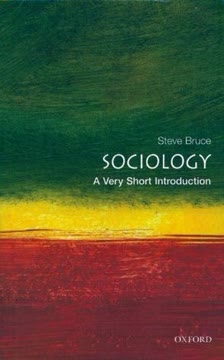
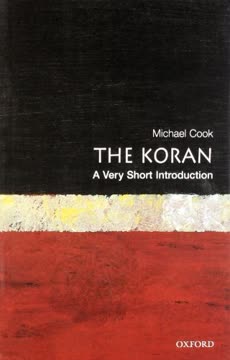
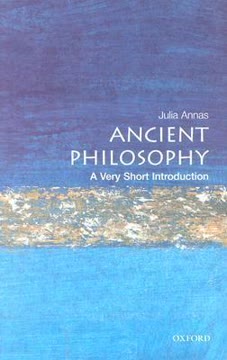
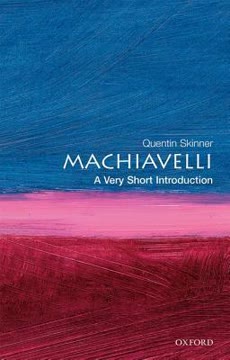
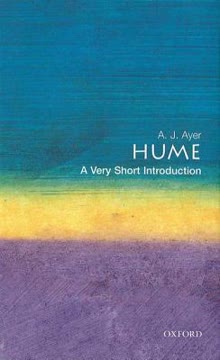

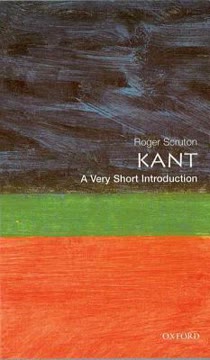
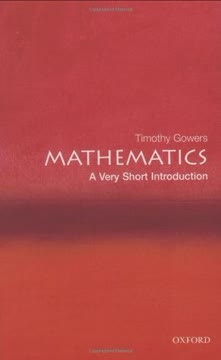
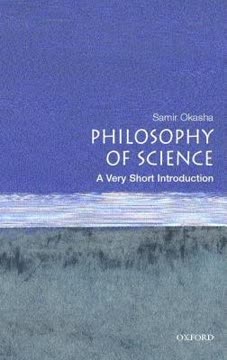
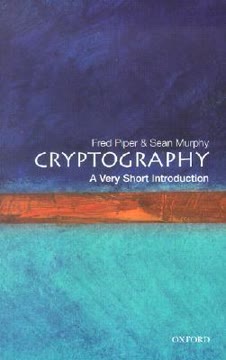
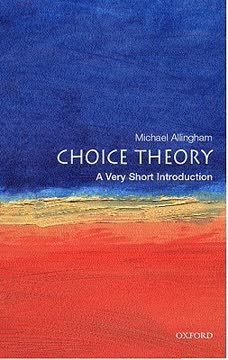
Download PDF
Download EPUB
.epub digital book format is ideal for reading ebooks on phones, tablets, and e-readers.




